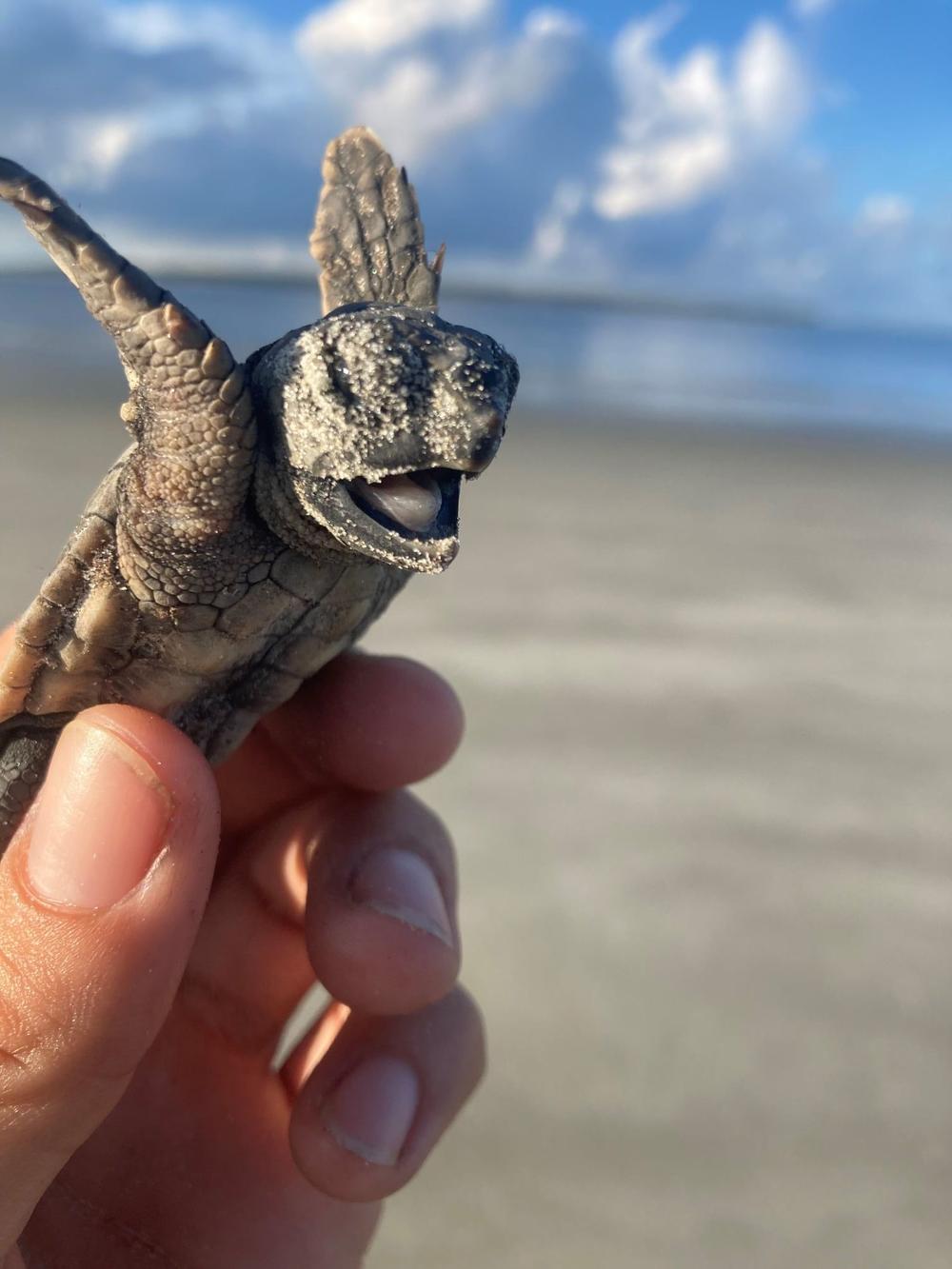
Section Branding
Header Content
Quarter million loggerhead sea turtle eggs laid on Ga. beaches
Primary Content

Mary Lander, The Current
Georgia’s loggerhead sea turtles didn’t set any records this nesting season. But they did just what Georgia Sea Turtle Coordinator Mark Dodd expected.
His models predicted a total of about 2,400 nests. The final count? 2,484.
While that’s nowhere near the nearly 4,000 nests recorded in 2019, it’s still keeping the turtles on track for recovery as a species, Dodd said. He expected the dip based on annual variability.
With turtles laying about 100 eggs per nest, this year’s nest total works out to about 250,000 eggs.
Volunteers and wildlife officials who patrol the beaches recorded nests on barrier islands from Little Tybee to Cumberland. Even populated beaches see nesting turtles now. Tybee had 19. Sea Island had 77. St. Simons had one.
Georgia came very close to losing its loggerheads not so long ago, Dodd said.
“We’re at half to a third of what the historic population was in the late ’50s, early ’60s,” he said.
As loggerheads numbers dipped in the 1980s, Georgia began protecting nests. And the state started protecting adult turtles, too, by encouraging the use of turtle excluder devices. TEDs as they’re called, were developed by Georgia shrimper Sinky Boone to prevent turtles from drowning in shrimp nets. They’re still in use, now by law.
Loggerheads that hatched in the 1980s are the ones starting to reach nesting age now, Dodd said.
“Those are the animals that are now responsible for the increase that we’re seeing,” he said.
He expects the population to stabilize, or even decline slightly over the next 20 years, before finally starting to recover toward historic levels. That is, of course unless there’s a new threat, such as summertime dredging proposed by the U.S. Army Corps of Engineers earlier this year.
“The moral of story is, you got a turtle that’s not sexually mature until 35 years old, it’s gonna take you a couple generations to recover the population — that’s 100 years,” Dodd said.
This story comes to GPB through a reporting partnership with The Current, providing in-depth journalism for Coastal Georgia.

